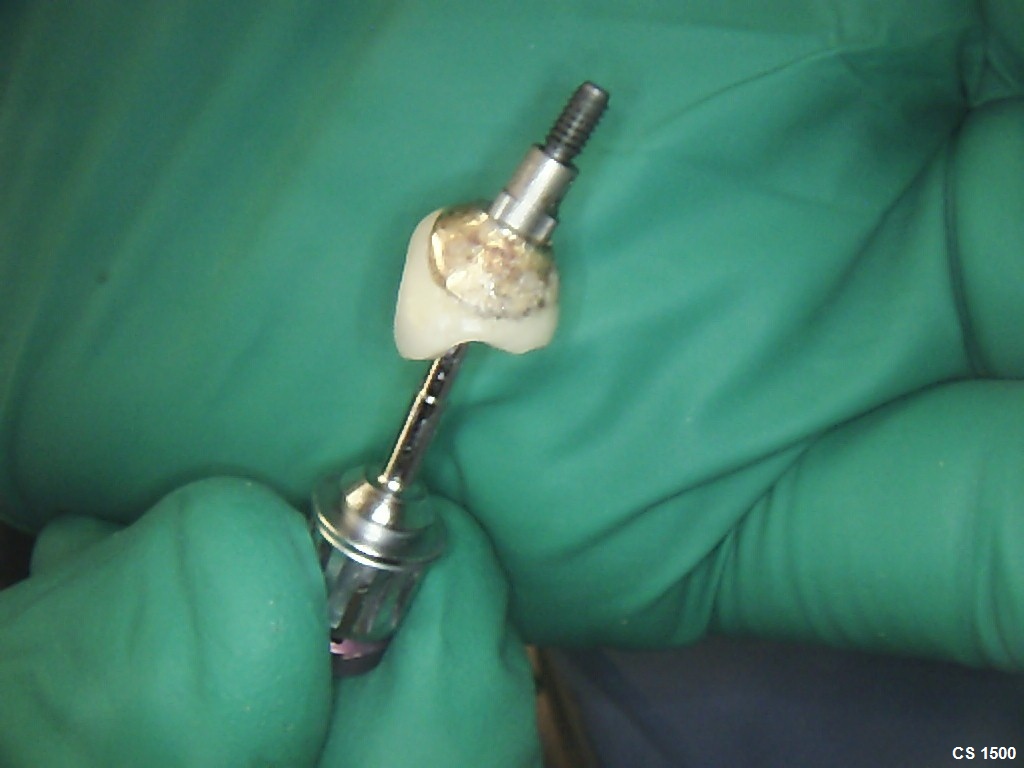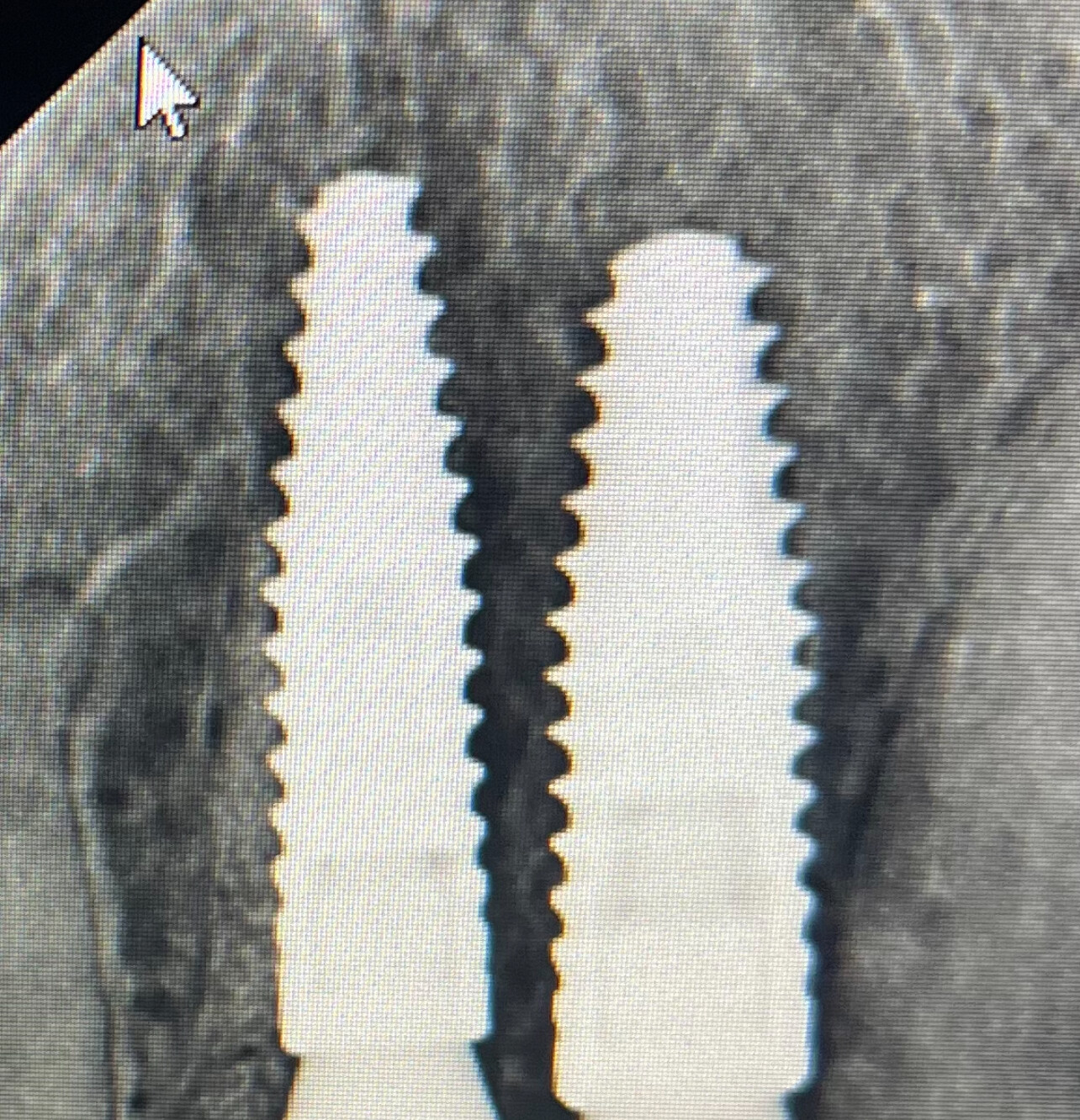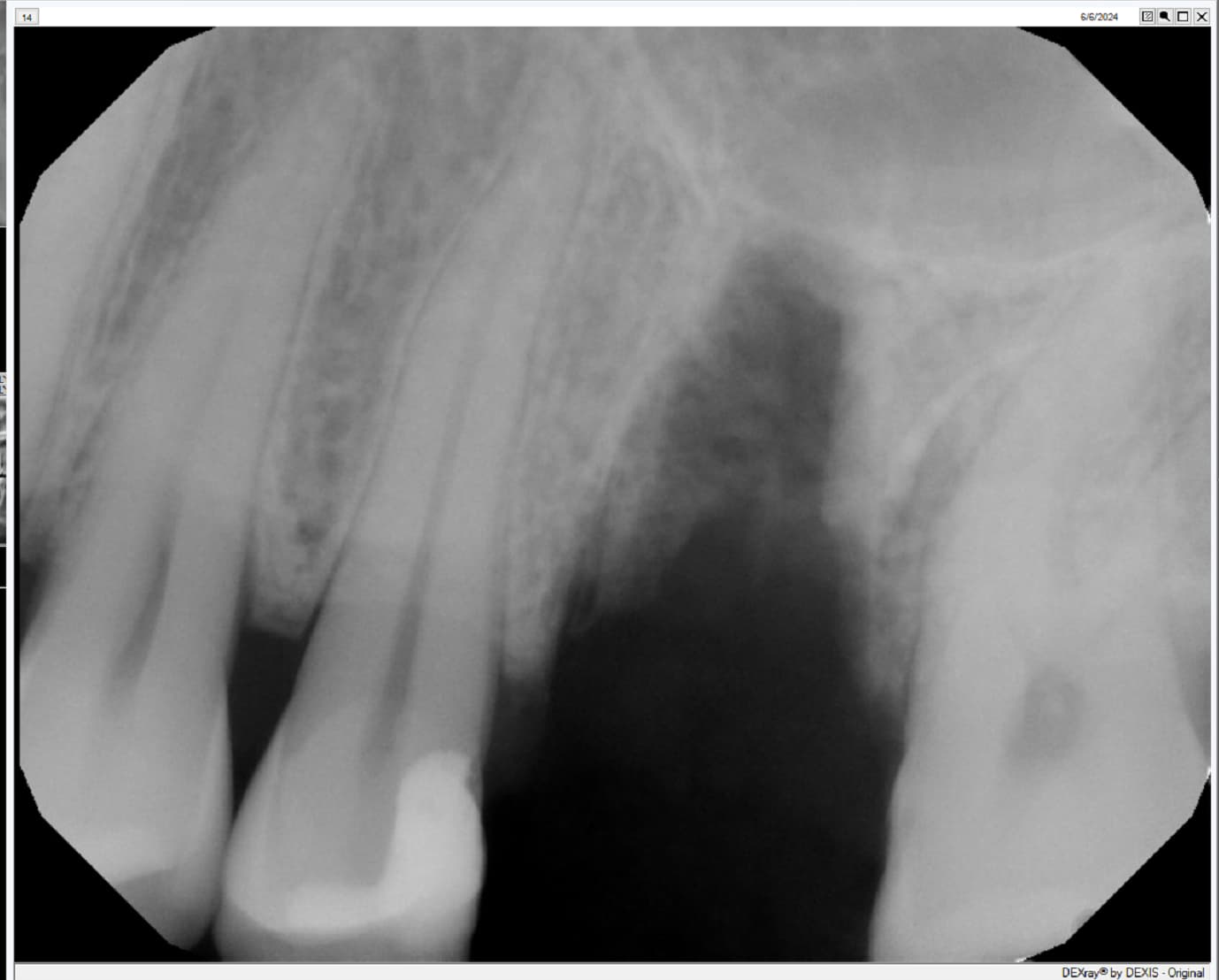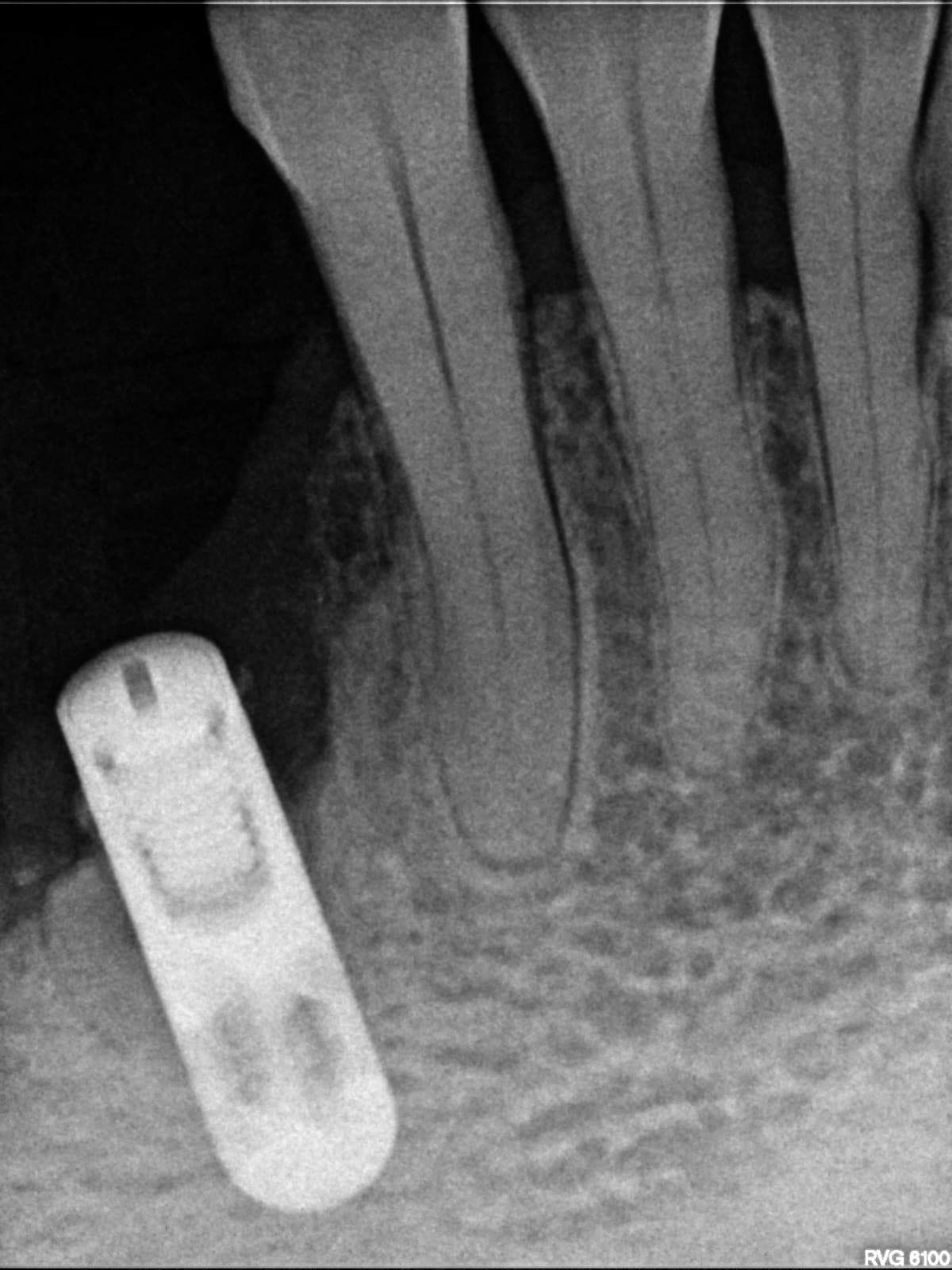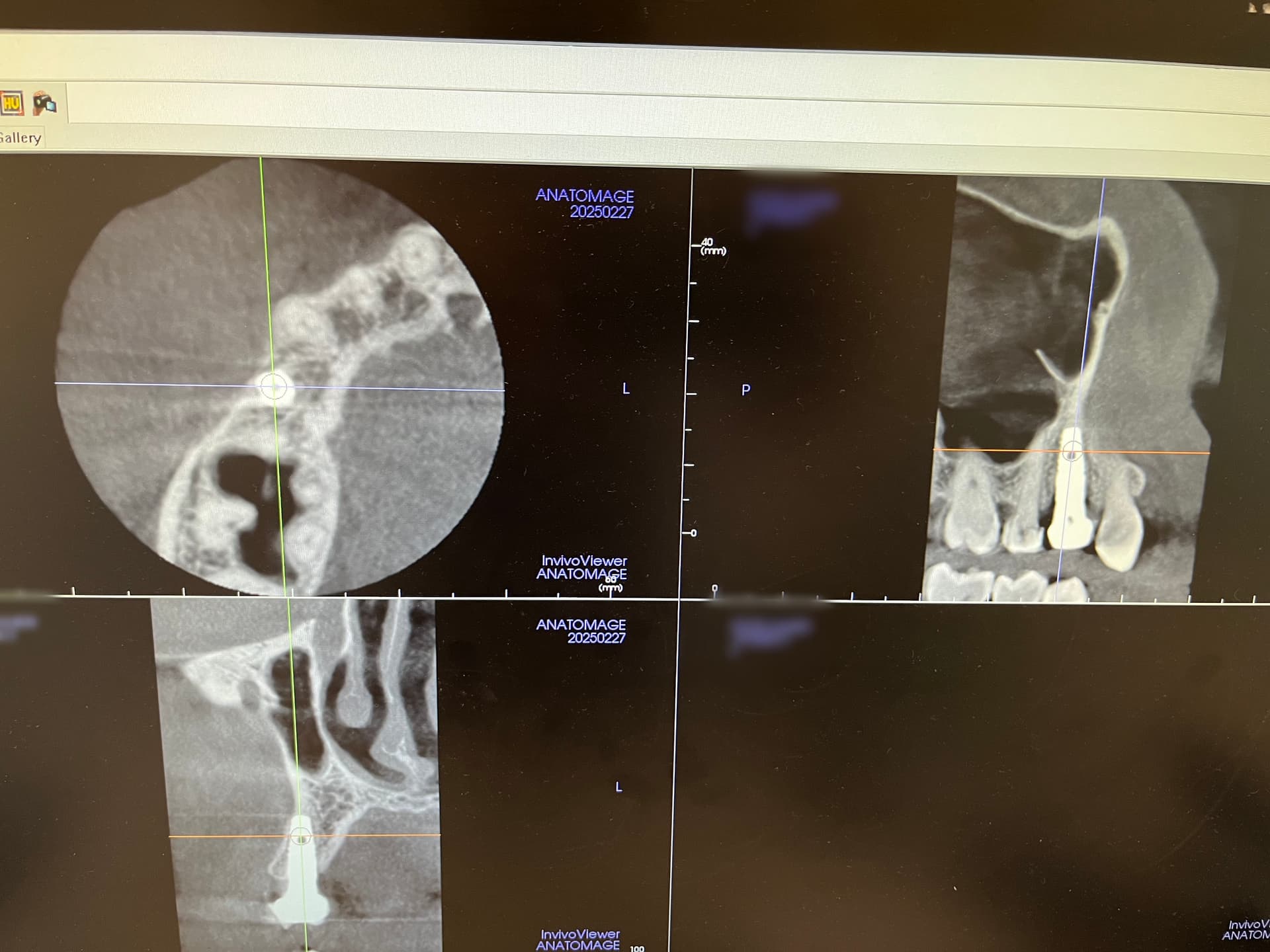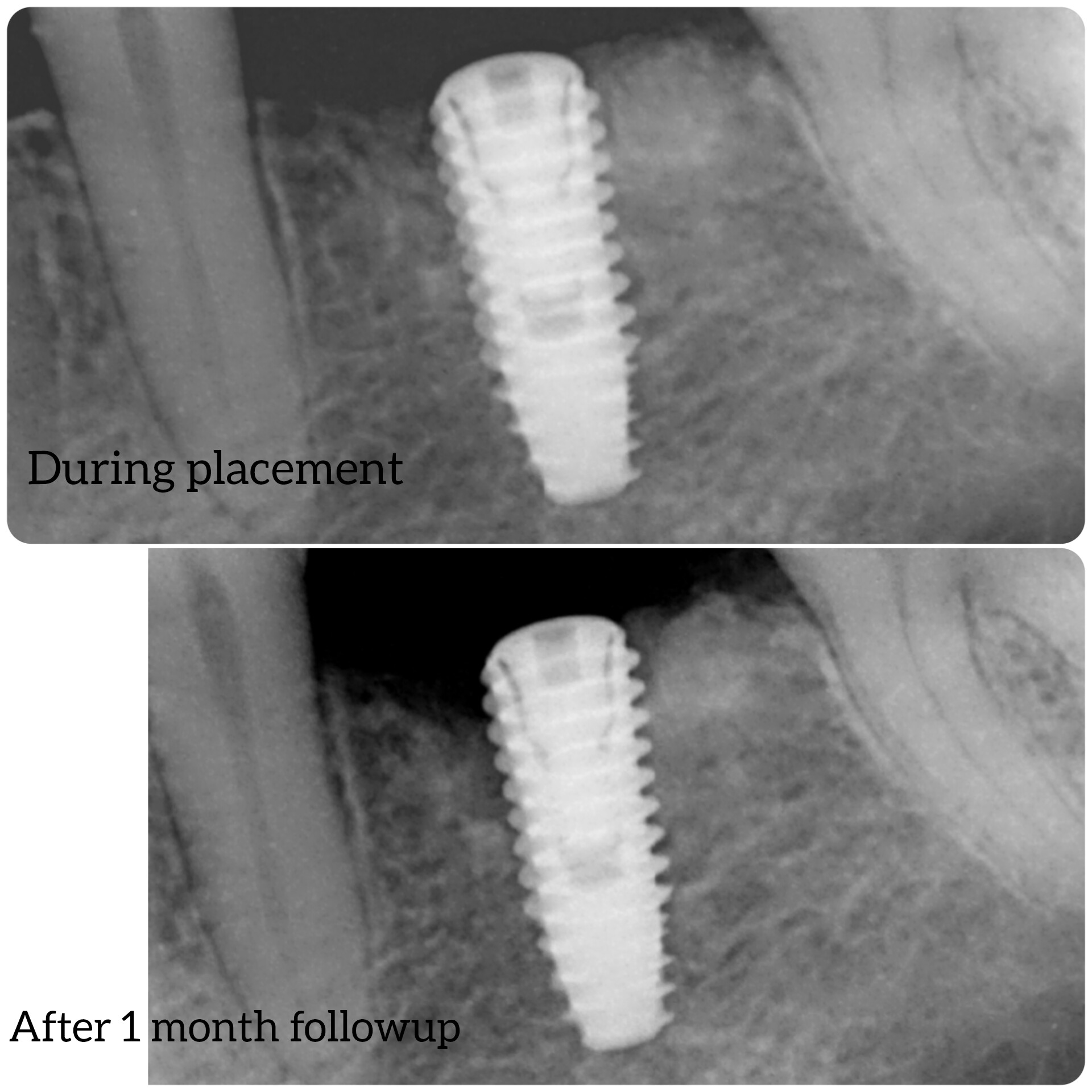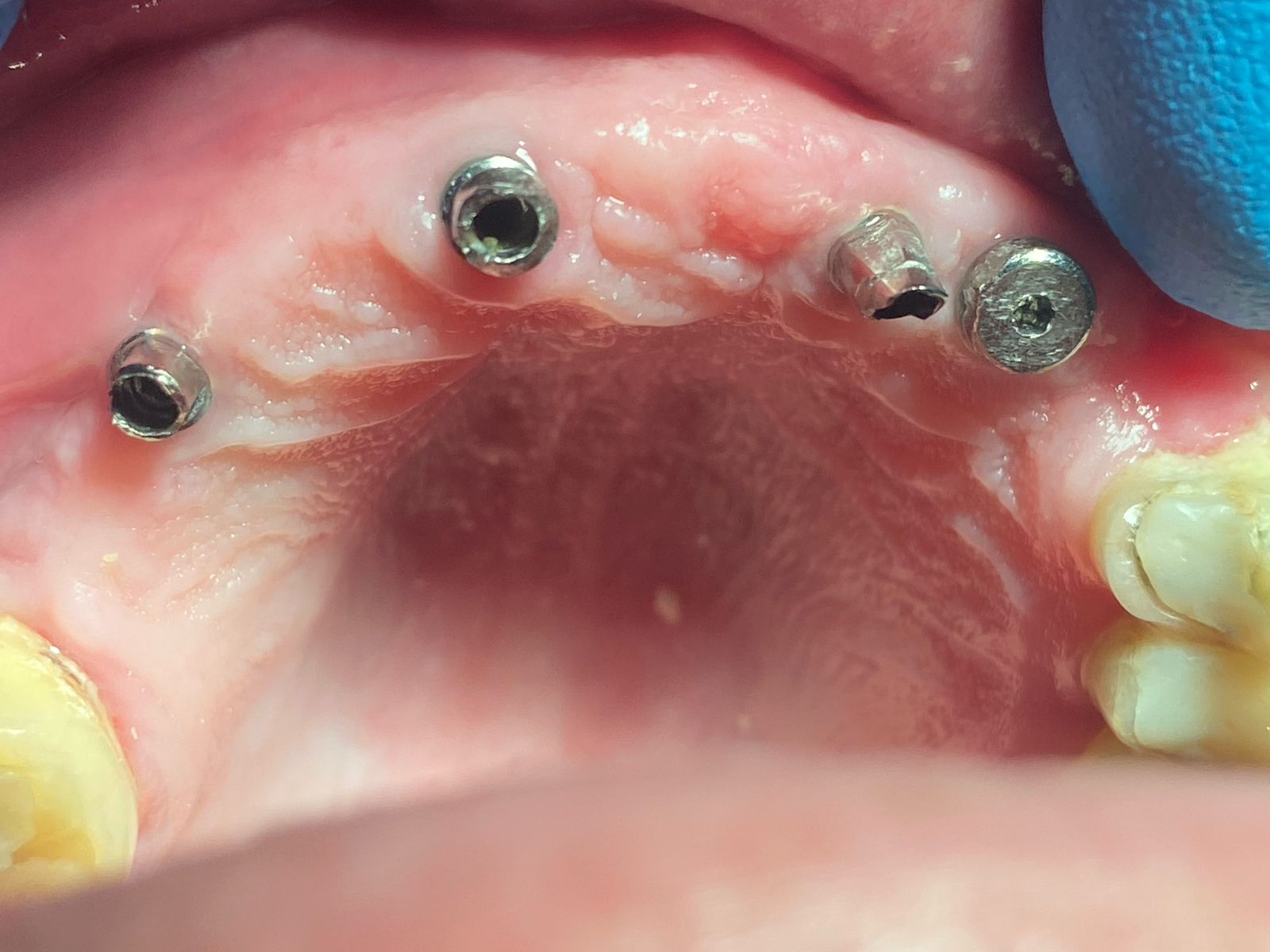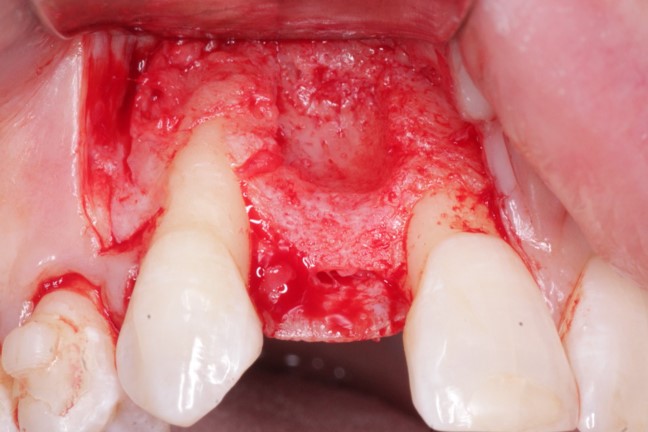Patient Has Paresthesia After Implants: How Should I Manage this Case?
Dr. K asks:
I just inserted a fixed partial denture in the mandible on 8 dental implants. One implant was very close to the mental nerve. The patient immediately developed a paresthesia. I backed out the implant 2 turns and the patient experienced relief and numbness began decreasing. At 3 weeks out now his numbness is almost gone. But now he has developed a burning sensation on the inner surface of his lip on the affected side. Any thoughts on how I should manage this case now?
14 Comments on Patient Has Paresthesia After Implants: How Should I Manage this Case?
New comments are currently closed for this post.
dr. h. Al Banna
10/17/2011
Just give it time.
What you are mentioning that the numbness is reduced that means you are on the right track of healing…It will just need time and it can go till 3 months.
Having burning sensation is a good sign of recovery of the nerve.
Good luck
Dr. Omar Olalde
10/17/2011
Agree with Dr. Al Banna the burning sensation is a a good symptom, a bad symptom would be that the patient has any sensation in his lip.
Good luck.
Dr.B
10/17/2011
If the burning sensation is causing your patient discomfort you can prescribe Neurontin (Gabapentin) or Lyrica. Both are sodium channel blockers which will reduce symptoms. Another option is a tricyclic antidepressant 10 mg qhs. Beware of side effects.
Dr. Dan
10/18/2011
getting more sensation is a good news. You did the right thing by backing out the implant. Now it's just the waiting game and reassuring the patient that everything is improving.
Dr .T
10/18/2011
I had a patient that suffered paraesthesia post ID nerve block. Went through stages of numb- burning - on/ off shooting pains- tingling then recovery. Took over 3 months. Anything other than numbness is good sign- don't worry.
Prof. André Paiva
10/18/2011
A good option is etna®. This drug is a neuroregenerator for peripheral nerves. I had good results with this. One ampoule 2mL IM 1 time a day for 3 days, followed by 1 capsule 3 times a day for 30 days. After IM injection you can already notice changes for better. All cases with paresthesia of our team due to compression or by implant proximity has been treated like this, with success.
Pm,DDS,MD
10/18/2011
You did everything right. I agree that all things point to a recovering nerve. If its still a problem at two months, refer to a "nerve repair specialist". Usually someone in the oral surgery dept at your nearest dental school. People lose malpractice cases for failure to refer, not usually for the initial problem. Good luck.
Pete
James Fitzgerald
10/18/2011
Good Pre-operative CAT scan/Radiography shuld have prevented this plus careful avoidance of anatomical structures. Once the incident has occured immediate referral to an appropiate specialist with full disclosure to the Patient is advised.
gary omfs
10/19/2011
DR B, you think getting your patient high on lyrica will help this problem ?? Dr palva, is there evidence- based material for your treatment?
wait and see is the only thing to do here. Pray it will recover. High dose steroids for some days immediately after the incident may reduce swelling in the canal and therefore speed up recovery but I'm not sure this is documented. After three weeks it's no use anyway.
AbG
10/19/2011
recovery after nerve injury may take a longer time.Patient can be put on methcobalamin 1500 +gabapentin combi- 2mnths
Dr.B
10/19/2011
Gary I agree that wait and see aproach is best. Use of lyrica should only be used if symptoms are chronic and patient is in discomfort or anxious. As someone trained in orofacial pain I have seen good results with this medication in neuropathic pain conditions. Ofcourse it should be considered only if mechanical or physical encroachment on the nerve has been removed. As I mentioned to the author, he needs to watch for side effects. Thanks.
George Paolinelis
10/22/2011
Dear Dr K,
I agree with the recommendation of high dose steroids immediately post-op. However would go further, to advise removal rather than backing out of the implant, imediately when becoming aware of injury, followed by placement of a shorter implant a few days later, provided the patient is assymptomatic. Backing the implant out neither fully decompresses the injured area nor helps the restorative phase / end result. Most of the injuries I have seen on referral were most probably caused by the drills used.
The fact that the patient has developed dysaesthesia is very unfortunate. Most sensory neuropathy patients with residual anaesthesia rarely complain as their lives are rarely affected. Paraesthesia in at least anoying, but dysaesthesia usually scored high in affecting the quality of life. In my experience there is not much that can be operatively done now. Pharmacological treatment in the lines suggested can help in symptomatic management, but only if the patient is severely affected, I would very rarely consider it so early. The good news is that it is early days.
josh keren
10/25/2011
After so many good recommendations i've nothing to add but my empathy, Nevertheless I think that the Medico-legal aspect of such cases should be carfully under discussion and the main question,to my opinion, is should we all completely abandon the old methods of inserting Implants blindly and use only modern methods meaning CGI (COMPUTER GUIDED IMPLANTOLOGY) in order to be faithful to the major command 'PRIMUM NON NOCERE' ?
Satish Bhardwaj
11/1/2011
I have had 4 patients with Mental nerve parathesia in 2 I opened 2 screws put them on Tab Lyrica for prolonged period Be rest assured the parathesia will subside with Time.










